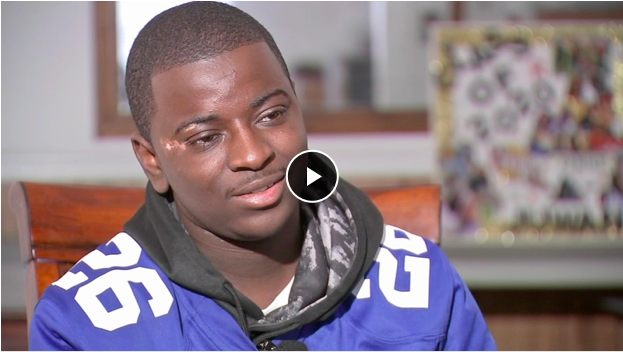Schaumburg, IL

When Sarah was diagnosed with a rare cancer that forms tumors on bone, her life was upended. A tumor on her pelvis forced her to take unpaid leave under FMLA.
It protected her health insurance but left her without income.
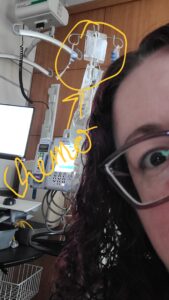 As treatment went beyond 12 weeks, her employer chose not to extend FMLA, and Sarah was let go. She applied for unemployment, but because she was not able to work due to illness, she was deemed ineligible.
As treatment went beyond 12 weeks, her employer chose not to extend FMLA, and Sarah was let go. She applied for unemployment, but because she was not able to work due to illness, she was deemed ineligible.
Over time, her condition worsened. Her diagnosis evolved to multiple myeloma and later she developed POEMS syndrome, a rare and complex disorder with symptoms that include severe neuropathy.
After a year without income, the combination of medical and living expenses became overwhelming. Bills piled up, and her situation was unbearable.
Asking for help was difficult for Sarah. Family and friends were there for her, but the financial burden grew worse as her treatments became more frequent and intense.
Providing A Lifeline
When it came time for a stem cell transplant, the treatment she urgently needed to save her life, the Icla da Silva Foundation stepped in to provide critical financial support. This lifeline allowed her to move forward with treatment.
Sarah was immensely grateful. “Thank you so much for granting me assistance. It should cover most of the hotel bill from my stem cell collection, and allow me to get some happy food to eat while holed up in my room for the next few weeks.”
Her stem cell transplant was a success! Although the journey isn’t over, we are hopeful for a full recovery and proud to have helped her gain a 2nd chance.
Your support makes a story like Sarah’s possible. Every contribution, no matter its size, is a lifeline for a patient facing the unimaginable challenges of cancer.
Thanks for reading.
Written by: Bret Itskowitch
A Father’s Fight for the FutureRidgewood, NJ
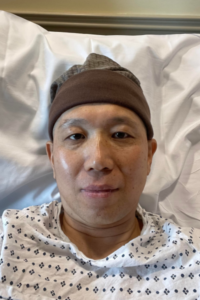 When Haksung and his family moved from South Korea to the U.S. a year ago, they faced the challenges of adapting to a new culture and language. Then came the unexpected. Haksung was diagnosed with acute myeloid leukemia (AML).
When Haksung and his family moved from South Korea to the U.S. a year ago, they faced the challenges of adapting to a new culture and language. Then came the unexpected. Haksung was diagnosed with acute myeloid leukemia (AML).
His concern wasn’t for himself, but for his family. He worried about how they would manage without him, especially his 14-year-old daughter. She was struggling with anxiety from the culture shock.
Now, they all faced an uncertain future together.
Despite fatigue, Haksung continued working part-time from home to keep his family afloat. But his income was cut in half, he was consumed with worry about providing for them. How would he afford to keep food on the table? How would they cover the transportation back-and-forth to the hospital?
That’s when the Icla da Silva Foundation stepped in. We provided critical support to help Haksung prepare for his bone marrow transplant. They literally had nowhere else to turn. Thanks to the generosity of our donors, we were able to grant funds for gas and groceries, which were essential during his treatment.
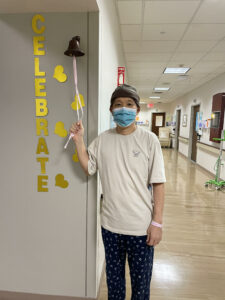 Finding a donor match proved difficult due to his ethnicity, but in an incredible turn of events, his daughter was a match. Even though she was only 14, and battling anxiety, she donated her stem cells to save her father’s life.
Finding a donor match proved difficult due to his ethnicity, but in an incredible turn of events, his daughter was a match. Even though she was only 14, and battling anxiety, she donated her stem cells to save her father’s life.
Haksung’s journey is far from over, but thanks to the support he received, he feels hopeful. “Your program gives me hope for our future. Thank you.”
You Can Help a Patient Like Haksung
Haksung’s story is just one example of the many families who face overwhelming challenges while battling blood cancer. Your generosity can make a difference. Donate today to help provide critical assistance to a patient like Haksung and give them hope for a brighter future.
Thanks for reading.
Written by: Bret Itskowitch
Martin’s Fight for SurvivalBronx, NY

Martin recently shared his journey to receive a life-saving bone marrow transplant. He describes a difficult process, with every step resulting in a new struggle, another challenge to overcome before he could proceed on his journey.
—–
Martin is a proud resident of the Bronx. He has worked construction in NYC for 36 years, he’s an electrician for local No. 3.
Last year, he became overwhelmed by an unexplained weakness. He was always tired on the job, and he couldn’t perform the way he used to. This wasn’t old age creeping up on him, this was something different. The fatigue he felt was extreme.
But the job wouldn’t wait and Martin was laid off.
Just a few weeks later, he was diagnosed with blood cancer, multiple myeloma. A bone marrow transplant was his only chance for survival.
This difficult news was followed by a litany of treatments and tests to prepare him for a transplant.
But as the weeks passed, Martin had difficulty walking. His legs swelled to the point that he couldn’t move without pain. His next diagnosis was bilateral DVT – dangerous blood clots in both legs. They prescribed blood thinners and the transplant was put on hold for a few months.
Finally, Martin was ready for the delicate process of aphaeresis.
They collected his stem cells, millions of them, to freeze and store in preparation for an autologous stem cell transplant. He was going to return to the hospital in a few days to undergo high-dose chemotherapy, clearing the cancer from his bone marrow. Then they would re-introduce his own stem cells to produce new, healthy cells.
Everything seemed to be moving forward – until it wasn’t.
Martin spiked a fever of 104 degrees, he turned yellow. He was rushed to the hospital and diagnosed with liver failure. His body battled for 22 days while his family slept on chairs in his hospital room.
 Thanksgiving came and went while he lay in a hospital bed, facing a seemingly endless cycle of new diagnoses and treatments. Each step forward seemed to come with another setback. By the time he was finally ready to receive his transplant, Martin was losing hope, and his savings had disappeared.
Thanksgiving came and went while he lay in a hospital bed, facing a seemingly endless cycle of new diagnoses and treatments. Each step forward seemed to come with another setback. By the time he was finally ready to receive his transplant, Martin was losing hope, and his savings had disappeared.
That’s when the Icla da Silva Foundation stepped in.
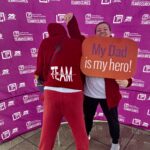 We provided Martin with the financial support he desperately needed to cover essential expenses. Beyond that, we offered emotional support, checking in regularly to be there for both Martin and his daughter Emily – his rock throughout this ordeal – to offer a listening ear and comfort during some of their toughest moments. We even searched outside our Foundation, helping the family find additional resources for assistance.
We provided Martin with the financial support he desperately needed to cover essential expenses. Beyond that, we offered emotional support, checking in regularly to be there for both Martin and his daughter Emily – his rock throughout this ordeal – to offer a listening ear and comfort during some of their toughest moments. We even searched outside our Foundation, helping the family find additional resources for assistance.
For 32 years, the Icla da Silva Foundation has been helping patients like Martin navigate these difficult journeys. We remove barriers to treatment during their greatest time of need. But we can’t continue this work without your help.
Your donation will directly assist patients, especially when they have nowhere else to turn.
Please donate to help a patient like Martin in their fight for survival.
The transplant was successful, and Martin was extremely grateful.
“I cannot thank you enough,” Martin shared in a moment of reflection, “I honestly would not have known what to do by myself. You helped me navigate a very rough course in life, and I’m extremely grateful.“
As Martin continues his journey to recovery, we wish him many years of health and happiness.
With your support, we will continue to help patients receive the help they need. Please donate today.
Thanks for reading Martin’s story.
Written by: Bret Itskowitch
Donor Needed: Local Boy Needs Bone Marrow Transplant – Sun Port Charlotte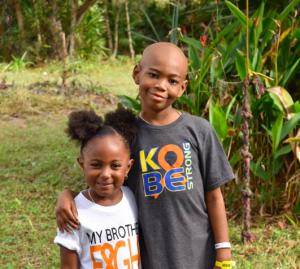 Jakobe Washington, an 8-year-old boy from Punta Gorda, Fl only wants one thing for Christmas this year…a matching bone marrow donor to save his life.
Jakobe Washington, an 8-year-old boy from Punta Gorda, Fl only wants one thing for Christmas this year…a matching bone marrow donor to save his life.
Read the story from the Port Charlotte SUN.
You can become a potential donor by joining the registry. It’s simple, safe, and free.
Heartache and Hope – 3 Transplants in 3 MonthsJulian Continues His Journey: The Search for a Life-Saving Donor
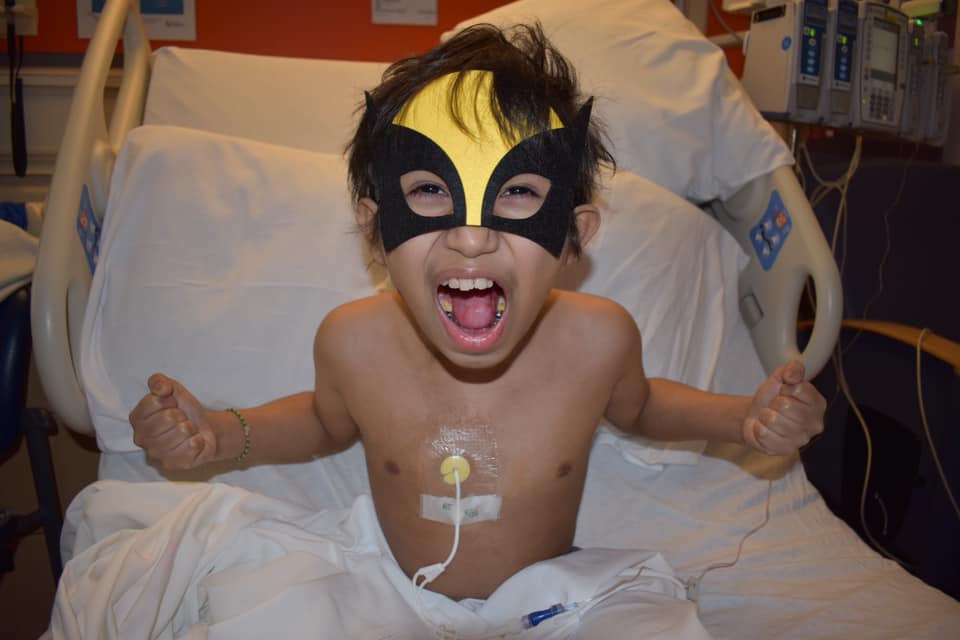
Julian Morales is a 9-year-old warrior.
He has suffered from a rare genetic disorder called Dyskeratosis Congenita (DKC) since the age of 3.
His bone marrow doesn’t work properly. Julian’s body doesn’t produce enough stem cells and as a result, his immune system is severely compromised. It also causes painful, sometimes bleeding ulcers in his mouth, which obviously affect his ability to eat…and speak.
Finding a Cure
The only cure to Julian’s life-threatening disease is a blood stem cell transplant.
In order to make that happen, his family needs to find a donor. A healthy, matching donor.
Doctors search the Be the Match registry to find donors. It’s a national registration of volunteers, each of whom has signed up to save a life by donating stem cells if they match a patient in need.
The best chance for a successful transplant is to find a donor who matches the ethnic background of the patient. There are over 20 million potential donors included on the registry.
But there are challenges when searching a donor match for each specific patient, especially if those patients are ethnically diverse.
Challenge #1
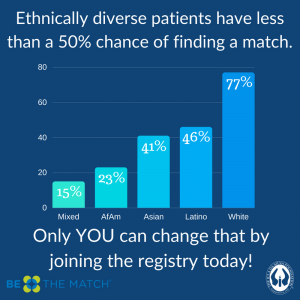 Because Julian is a mix of Mexican and Nicaraguan descent, the chance of finding a matching donor was very limited. Only 7% of potential donors on the registry identify as Hispanic or Latino. There simply aren’t enough people of Hispanic origin included on the registry.
Because Julian is a mix of Mexican and Nicaraguan descent, the chance of finding a matching donor was very limited. Only 7% of potential donors on the registry identify as Hispanic or Latino. There simply aren’t enough people of Hispanic origin included on the registry.
Finding someone who is Mexican and Nicaraguan is even less likely.
His parents became aware of this challenge very quickly.
A Simple Assumption
When you visit the doctor or go to the hospital with a disease, you assume they will be able to help you. There are expectations that a medicine will be prescribed or surgery will be performed in order to make you better. You assume they will be able to cure you.
You never expect that the life or death of your child will rely on searching for and finding a volunteer donor. You never consider that you must find someone who matches your ethnicity and is willing to donate their stem cells, so your son may survive.
The Goal
There was no match for Julian on the registry.
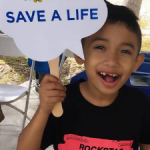 So his parents worked with us day and night to search for a matching donor. We held recruitment drives together at universities, churches, and street fairs. His parents spoke with newspapers and television stations. They met with anyone who would listen in order to spread the word.
So his parents worked with us day and night to search for a matching donor. We held recruitment drives together at universities, churches, and street fairs. His parents spoke with newspapers and television stations. They met with anyone who would listen in order to spread the word.
New Facebook and Instagram pages were started. YouTube channels were produced. All to increase awareness and add more potential donors to the registry. They had to tell his story…over and over again.
We were searching for his cure.
Challenge #2
The second challenge is not just finding a donor who matches but finding one who will say ‘yes’ when called to donate.
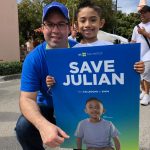 In 4 years, the Icla da Silva Foundation worked with Julian’s parents to hold hundreds of recruitment drives. We added thousands of new donors to the registry on behalf of Julian.
In 4 years, the Icla da Silva Foundation worked with Julian’s parents to hold hundreds of recruitment drives. We added thousands of new donors to the registry on behalf of Julian.
In the 4th year, two matching donors were finally identified.
Unfortunately, they both said no when asked to transplant their cells. One after the other. They each said no.
Can you imagine the heartache? To work so hard, to come so close to saving the life of your little boy, only to be turned down?
So we continued the search, hoping to find that one match who would agree to a transplant.
Commitment
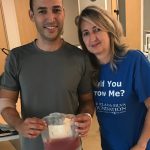 Becoming a stem cell donor does require a commitment, but it is not unsafe or painful. 79% of donations are done through a non-surgical process called PBSC. The process is similar to giving plasma. The donor receives a shot of a drug called filgrastim every day for 5 days. This increases marrow production in the body. On the day of your donation, you visit a hospital or clinic for the PBSC procedure. They take blood from your arm, separate the stem cells, and return the blood to your body through the other arm. It usually takes about 4 hours.
Becoming a stem cell donor does require a commitment, but it is not unsafe or painful. 79% of donations are done through a non-surgical process called PBSC. The process is similar to giving plasma. The donor receives a shot of a drug called filgrastim every day for 5 days. This increases marrow production in the body. On the day of your donation, you visit a hospital or clinic for the PBSC procedure. They take blood from your arm, separate the stem cells, and return the blood to your body through the other arm. It usually takes about 4 hours.
In the amount of time between breakfast and lunch, while sitting in a clinic and watching TV, or talking on the phone and having a snack, you may save the life of another person.
A Match Was Found
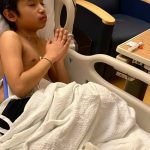 Finally, a matching donor was found, followed by much joy and relief. Julian and his family were grateful and happy to travel to Cincinnati Children’s Hospital to prepare for the transplant.
Finally, a matching donor was found, followed by much joy and relief. Julian and his family were grateful and happy to travel to Cincinnati Children’s Hospital to prepare for the transplant.
His little body had already been through so much, but it was only just the beginning.
So much testing, prepping, prodding, and chemo in the days leading up to his transplant. This was in July, so the testing included repeated COVID testing. Then finally infusion, and waiting for the cells to engraft…all during a global pandemic, while protests and social unrest happened throughout the country.
His parents published a video diary of those first few days which is highlighted here.
But the transplant wasn’t successful. Julian’s body fought the new cells.
2nd Transplant
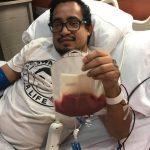 The doctors recommended a haploidentical (haplo) transplant. A haplo is a half-matched stem cell transplant from a family member. A biological parent or child is always a half match to the other, based on genetics.
The doctors recommended a haploidentical (haplo) transplant. A haplo is a half-matched stem cell transplant from a family member. A biological parent or child is always a half match to the other, based on genetics.
Since haplo matches aren’t 100% compatible, it comes with more risk.
They tested and chose Daddy as the best candidate.
Unfortunately, once again, Julian’s immune system fought off his daddy’s new cells.
3rd Transplant
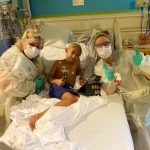 Refusing to give up, the small warrior and his parents agreed to try another transplant. More testing, more chemo, a third month in the hospital…and a third transplant, this time from Mommy.
Refusing to give up, the small warrior and his parents agreed to try another transplant. More testing, more chemo, a third month in the hospital…and a third transplant, this time from Mommy.
For the third time in a row, the transplant didn’t work. Julian’s body fought off the cells.
Now What?
We begin again. Three transplants in three months and we will start the process all over again. We will continue to fight to save Julian’s life! We will continue the search for a compatible life-saving donor.
Small Goals
The warrior is waiting. His warrior parents are waiting. Waiting and worried, but they carry on. They’ve been fighting this battle for more than 6 years. Until then, the family takes it one day at a time.
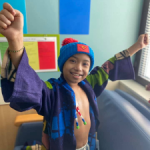 Julian’s most recent goal was to eliminate some of the many lines that attach his body to machines. Most recently, his TPN line (the feeding line that bypasses the gastrointestinal tract) and his PCA line (the line that helps him control his pain) were removed.
Julian’s most recent goal was to eliminate some of the many lines that attach his body to machines. Most recently, his TPN line (the feeding line that bypasses the gastrointestinal tract) and his PCA line (the line that helps him control his pain) were removed.
His goal is to prepare for Halloween. He wants to be able to wear a costume.
But he won’t tell anyone what he will be…it’s a surprise…and we can’t wait to see him smiling in it!
We wish you a happy Halloween Julian. We’re here for you. Keep smiling.
Become a potential blood stem cell donor. Include yourself on the national registry. Do it for Julian.
written by: Bret Itskowitch
Julian Found His Matching Donor → Julian’s Transplant Journey The Icla da Silva Foundation has been working with 8-year-old Julian Morales and his family for four years. Finally, after hundreds of drives and thousands of sign-ups, a matching blood stem cell donor has been found.
The Icla da Silva Foundation has been working with 8-year-old Julian Morales and his family for four years. Finally, after hundreds of drives and thousands of sign-ups, a matching blood stem cell donor has been found.
Julian and his family have fought a tough battle…and their journey has only just begun.
Can You Imagine?
Julian was diagnosed with Dyskeratosis Congenita when he was only 3-years-old. DKC is a rare genetic disorder in which the bone marrow does not produce enough blood cells.
Throughout his young life, Julian’s body has endured pain and suffering. He has lesions on his tongue and often cannot eat. It affects the way he speaks. Sometimes he has pain just from walking. He has spent entire evenings crying because of that pain.
Insufficient blood cells mean that Julian has always been immunocompromised. He is constantly in danger of serious infection. This is why his mother has always kept him close….there have been no playgrounds, birthday parties, or water parks for Julian.
Stress on the Family
All the while, his parents Mayra and Dani have had to deal with the unknown. When will a matching blood stem cell donor be found for Julian? When will his life-saving donor join the registry? There has been a lot of confusion and many setbacks. Matches had been identified, but potential donors have said no.
 They have had to hide their fear while doing the best they can to manage the hopes and dreams of a little boy with a life-threatening disease. They have kept him safe and hoped for the best.
They have had to hide their fear while doing the best they can to manage the hopes and dreams of a little boy with a life-threatening disease. They have kept him safe and hoped for the best.
Even his adorable little sister Bella has had to bear some of the weight on her shoulders. She is always worried about her brother’s well being.
True Warriors
Julian and his family have managed this remarkable challenge like true warriors. They are fighters…all of them. They never stopped searching for his cure. They never gave up hope and they have always been actively involved.
The family has been strong advocates for donor registration. They are at every local recruitment drive. They have made themselves available for every press opportunity, both in English and Spanish. They shared their search, and continue to share the mission through hundreds of social media posts.
They have been the leaders of Julian’s search for a matching donor and we have been proud to be on their team.
Even now, after a blood stem cell match has been found, and a transplant has been scheduled, they continue to raise awareness of the need for more stem cell donors.
We are grateful for their passion.
Continuing Julian’s Journey – And Helping Others
As Julian continues on the road to his transplant, his parents have been documenting his trip to the Cincinnati Children’s Hospital Medical Center. They have been filming some of the tests and evaluations that Julian has been going through. They have included their thoughts and some of the tears.
They are sharing this journey to help others with their experience. We appreciate their efforts to video and share. We hope their documentation will make the experience easier for the next patient.
Below is an overview of the first 6 days. You can follow them more closely through their Facebook page: SaveJulian
Julian’s Surprise Drive-By
Celebrating Julian’s upcoming transplant with a surprise “drive-by” due to COVID-19. Julian has always received tremendous support from his family and friends.
Road-Trip to Cincinnati
A 16-hour drive north, avoiding riots and maintaining curfew along the way. It’s never easy.
As they begin their life-saving road trip, Julian’s parents are anxious. Dad admits his fear and hopes for the best. Everything has been scheduled, but they will not know the outcome until it’s over.
Even during their journey, these Warriors are still supporting the message of adding more donors to the Be The Match registry.
Day 1 – First Day of Evaluations for Stem Cell Transplant
They are up early to get breakfast so they can be at the hospital by 8AM. Today’s schedule includes some bloodwork, COVID testing, Pulmonary Function Tests (PFT), and meeting with doctors.
Unfortunately, the COVID test was the most uncomfortable for Julian.
Day 2 – More Scans and Lab Work
Julian had CT scans, MRI’s, more lab work, and consultations with doctors.
At the end of the day, he just wanted some chocolate cake, but he found out that there is no Publix (a Florida supermarket) in Cincinnati :-).
Day 3 – Fighting Through All of the Poking and Prodding
More MRI, EKG, ophthalmology, and echocardiogram. Julian will be admitted this evening for some procedures tomorrow.
He is happy to receive packages from his friends and read their cards.
Day 4 – A Day of Procedures
In the hospital since last night. A full day for procedures (esophageal dilation, bone marrow aspiration, a biopsy of the mouth, and biopsy of the stomach) and hoping to be discharged tomorrow for some rest before his transplant.
Some of Julian’s procedures and testing will enable research to help future patients.
As you might expect, Julian feels both “happy and nervous.”
Day 5 – Reviewing the Transplant Schedule
Recovering from yesterday’s procedures and a GFR which measures the filtration rate for his kidneys. This video includes an overview of the 10-day schedule where Julian will undergo the necessary chemo treatments leading up to his transplant.
They also find out some positive information about the donor and Mayra thanks them (bring tissues).
Day 6 – Taking it Easy
Only 1 appointment today so they took it easy. Julian won’t be admitted into the hospital again until June 15, and then he will begin chemo treatments of Campath SQ followed by Fludarabine. His transplant, day zero, is scheduled for June 26.
We wish them a successful transplant and a lifetime of happiness. They deserve it!
Please join the registry. Do it for Julian. So many patients are waiting to find their matching cure.
Written by: Bret Itskowitch
Help Us Save JuwanJuwan Adams lives in Abington, PA, just north of Philadelphia. He is a Senior at Abington High School where he is a Drumline Captain, a National Honor Society scholar, and he holds a 4.25 GPA.
In his spare time, Juwan volunteers with pediatric cancer patients.
For the past 4 years, he has also been battling Hodgkin’s Lymphoma. Juwan urgently needs a stem cell transplant to survive.
 The Cure
The Cure
The only cure for Juwan is to find a matching stem cell donor. His family has been tested and his doctors have been searching the Be The Match registry.
But there is still no match for Juwan…and his time is running out.
The Challenge
The challenge is finding a donor with a similar ethnic background. The chances of a Black blood cancer patient like Juwan finding a match is only 23%. White patients have a 77% chance of finding a matching donor.
There simply aren’t enough African Americans included on the registry.
Not yet anyway.
The Search
His friends, his family, and even his high school have been holding marrow drives, asking people to join the registry. He has received support from Penn State and the University of Pennsylvania. Even the Philadelphia Sixers’ Matisse Thybulle has been showing his support and calling on fans to register in case they are a match for Juwan.
But there is still no match.
Could it be you?
Please join the registry on behalf of Juwan. If you aren’t a match for him, you may match another patient. 14,000 patients are searching for their life-saving donor every year. Click the link below and you will be asked to set up an account online. Be The Match will mail you a kit to swab the inside of your cheek. Once you return the kit, you will be included on the registry.
If you match a patent in need, you will receive a call asking you to donate your cells and they will walk you through the process.
Donating
80% of transplants use the PBSC method, which is similar to donating plasma. In the time between breakfast and lunch, you may be able to save someone’s life by donating your stem cells.
It doesn’t cost anything and they don’t even use your insurance. Be The Match will take care of everything.
Please join today. Join for Juwan.
Help us spread the word. Share Juwan’s story so we can increase the ethnic makeup of the donor registry. You can host a drive or find more information about getting involved here.
Together we can save more lives.

Written by: Bret Itskowitch
17-Year-Old Blackbelt, Needs a Fighting Chance to Beat Aplastic Anemia
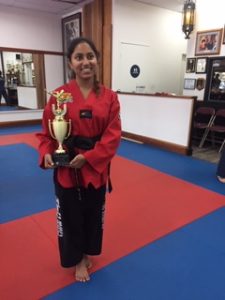 Anika Mathur is 17 years old and lives in California. Anika, or Ani, is a dedicated student and an accomplished classical dancer who loves to cook.
Anika Mathur is 17 years old and lives in California. Anika, or Ani, is a dedicated student and an accomplished classical dancer who loves to cook.
Ani is also a fighter. She holds a blackbelt in Taekwondo, the Korean martial art that focuses on striking your opponent as a means of self-defense.
Tae Kwon Do translates to “the way of foot and fist”. It is often characterized by an inordinate amount of jumping and spinning…with repeated ‘kicks to the head’.
Given her training as a classical dancer, Anika took well to martial arts.
A Different Kind of Battle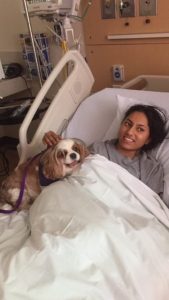
Now, Anika is fighting a much different type of battle.
Last year she was diagnosed with Aplastic Anemia, a life-threatening condition where the body doesn’t produce enough new blood cells.
Aplastic Anemia leaves the patient feeling fatigued and with a higher risk of infection and the potential for uncontrolled bleeding.
Since her diagnosis, and given the repeated visits to the hospital, Anika has been homeschooling. Her parents hope that she can still graduate High School on time, while also maintaining a lower risk of infection.
Anika will need more than “foot and fist” to combat Aplastic Anemia. To survive, she needs a matching stem cell donor from a stranger.
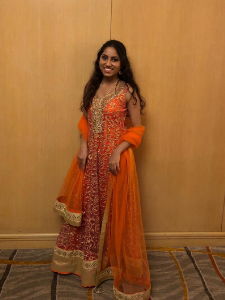 Give Anika a Fighting Chance
Give Anika a Fighting Chance
There is no matching donor in her family. There is also no match on the national Be The Match marrow registry.
Because Anika is of Indian descent, the odds of a successful transplant are greater if we can find a donor with similar South Asian ancestry.
We need more South Asians to include themselves on the registry.
We have been recruiting within Indian communities across the country. If you are aware of opportunities where we can reach a larger audience, please email us at info@icla.org and include “For Anika” in the subject line.
Help us find a matching stem cell donor for Anika to survive.
Include Yourself on the Registry
If you are between the ages of 18-40, you can easily add yourself to the registry. Ask your friends and family to join as well. Click the link below to set up an account and answer a few questions. A kit will be mailed out, asking you to swab the inside of your cheek for HLA typing.
Once you return the kit, your name will be included on the registry to see if you are a match for Anika…or any of the other 14,000 patients who do not yet have a matching cure.
Help us find a cure for Anika. Help us give her a fighting chance.
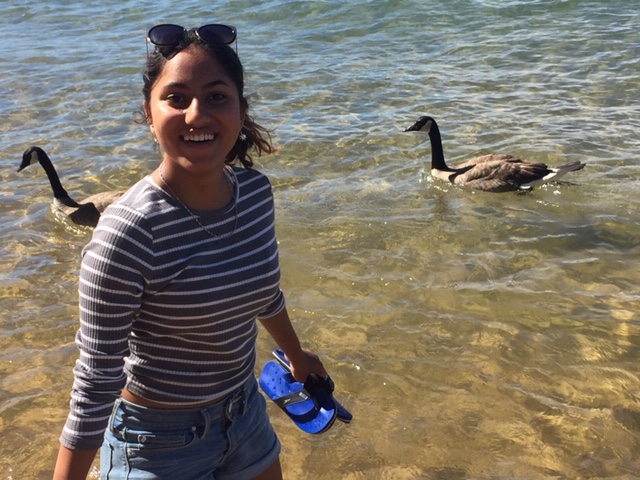
Written by Bret Itskowitch
Local Teen Hoping to Find Stem Cell Transplant Match Through Be the Match bone marrow registry – WPVI TV PhiladelphiaABINGTON, Pennsylvania (WPVI) — A local teenager in need of a life-saving stem cell transplant is encouraging more people, especially minorities, to join the bone marrow registry.
Juwan Adams, 17, proudly plays the snare drum for the marching band at Abington Senior High school. He’s also on the national honor roll and a math tutor.
Unfortunately, he’s doing all this while also battling cancer. “It’s a little rough some times. There are some days you just want to be normal but other days realize you just have to keep fighting,” he said.
Join the registry for Juwan
Teen Battling Leukemia Asks for Hispanic Community to Donate Bone Marrow – NBC DFW
Since April, 18-year-old Javier Guereca’s been dreaming of the day he’ll be told he’s matched with a bone marrow donor that can finally put an end to the leukemia he’s battled for a third of his life.
Guereca was first diagnosed at age 11. He’s spent more days in and out of the hospital than he can count, sometimes spending as long as two to three months there at a time.
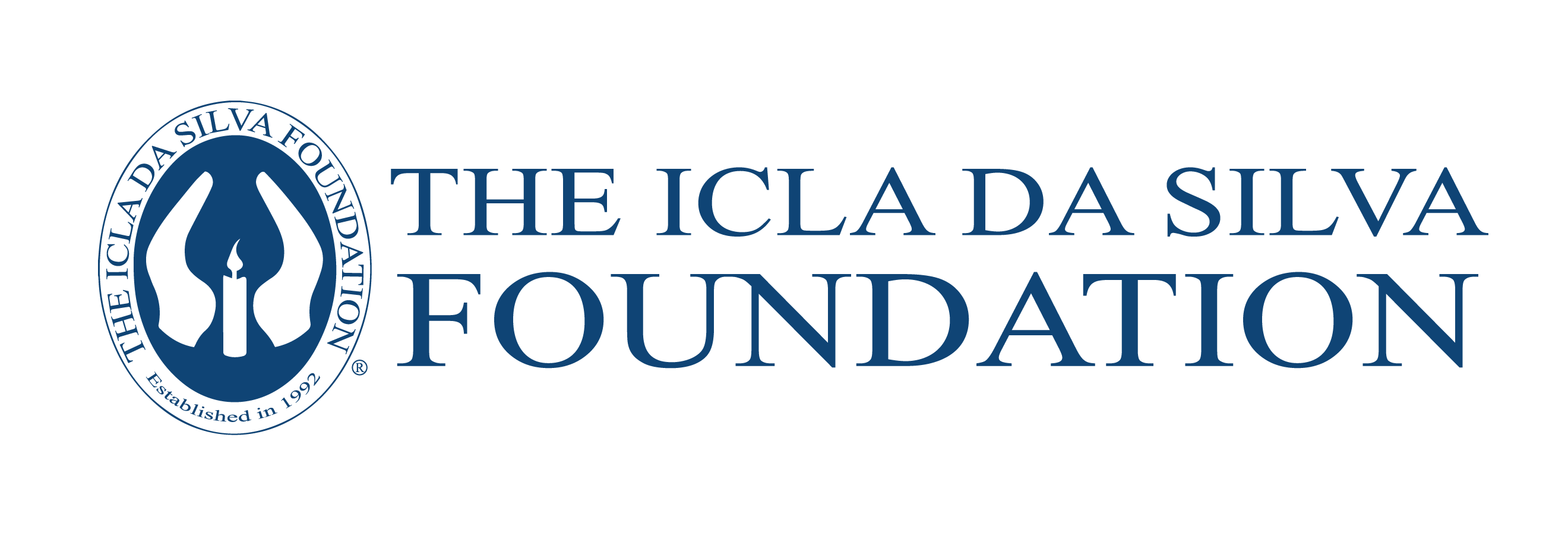
 English
English Spanish
Spanish Portuguese
Portuguese
